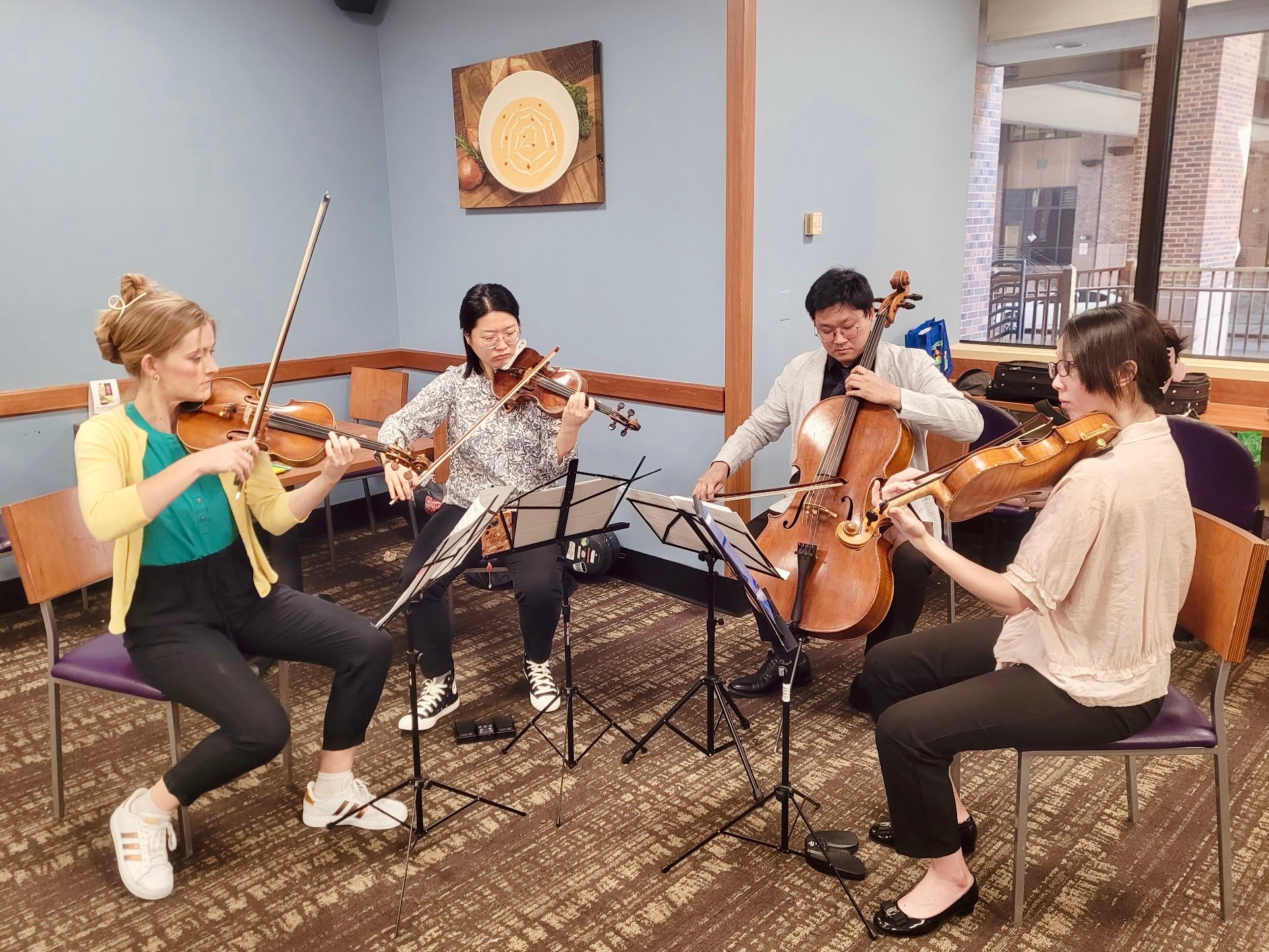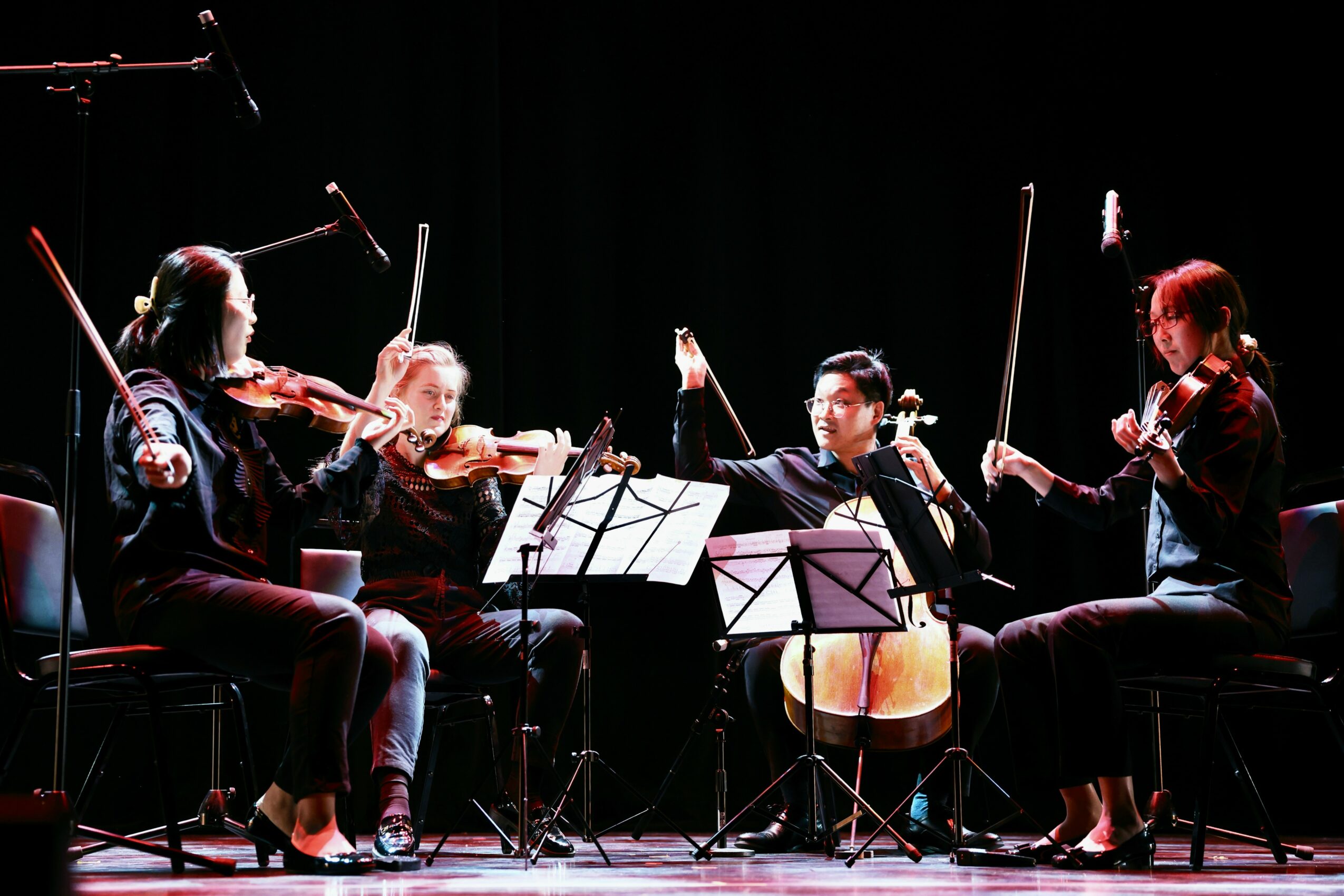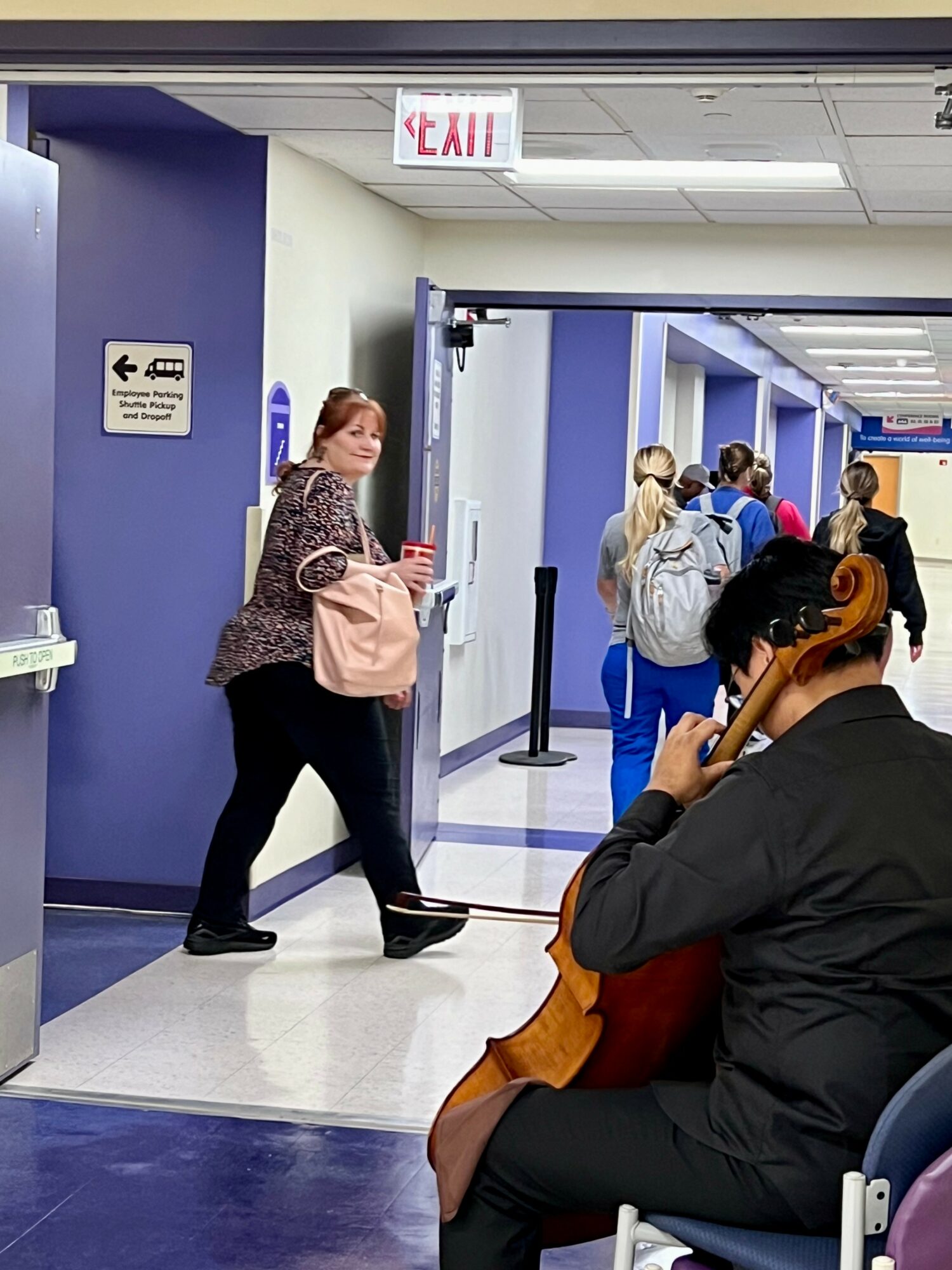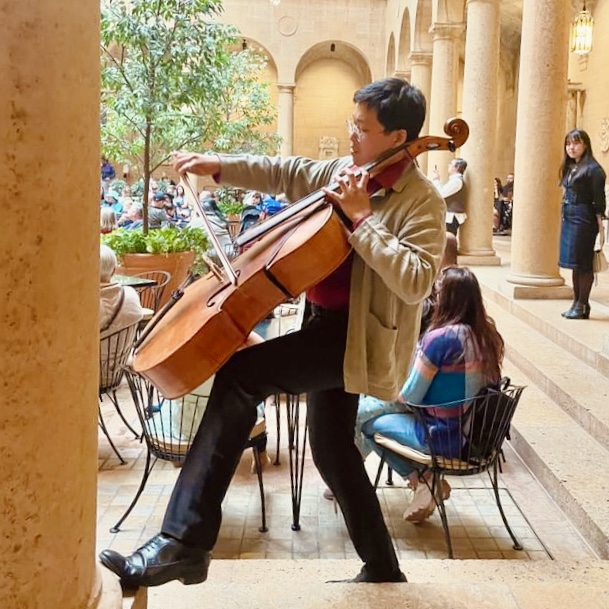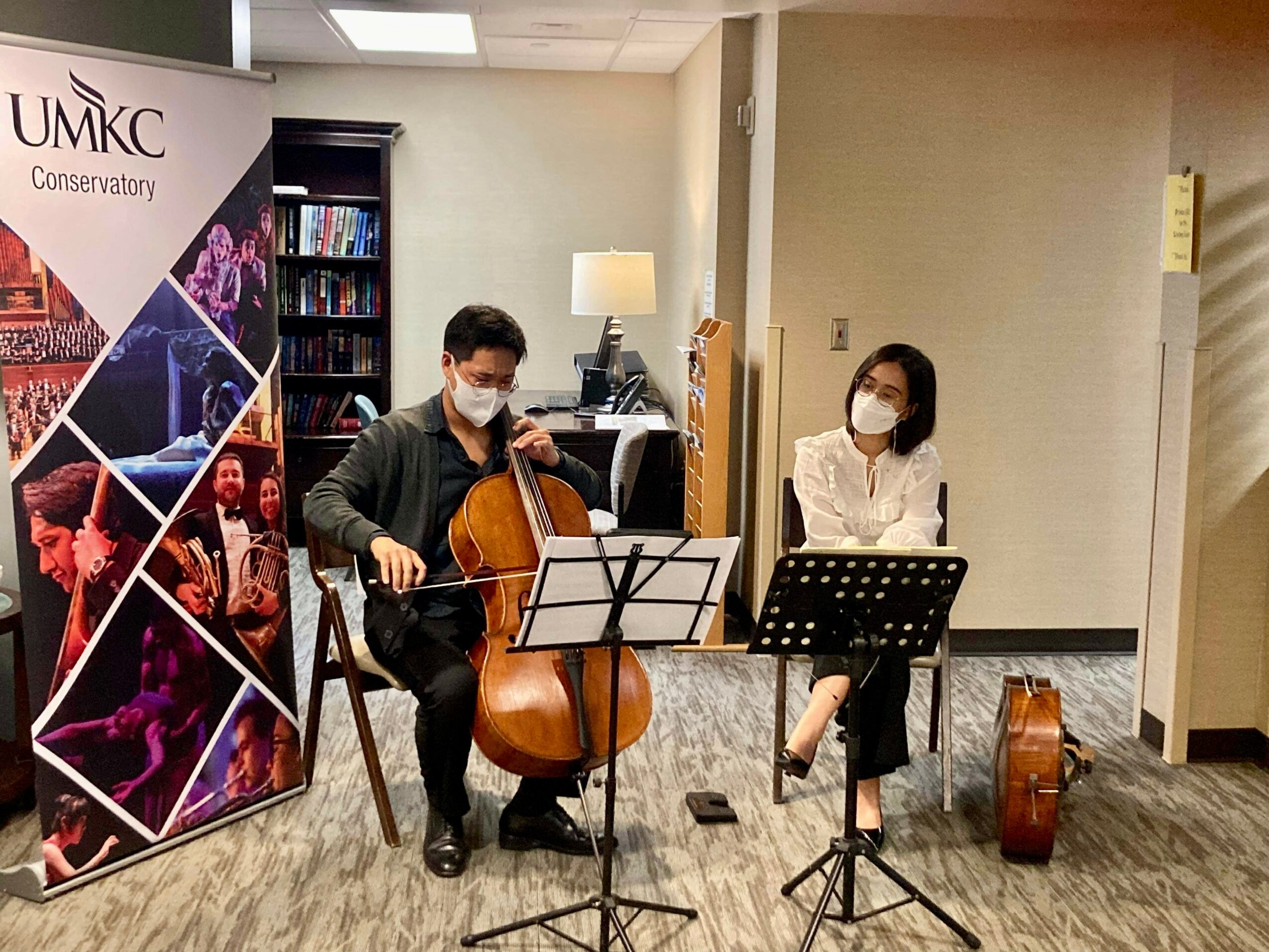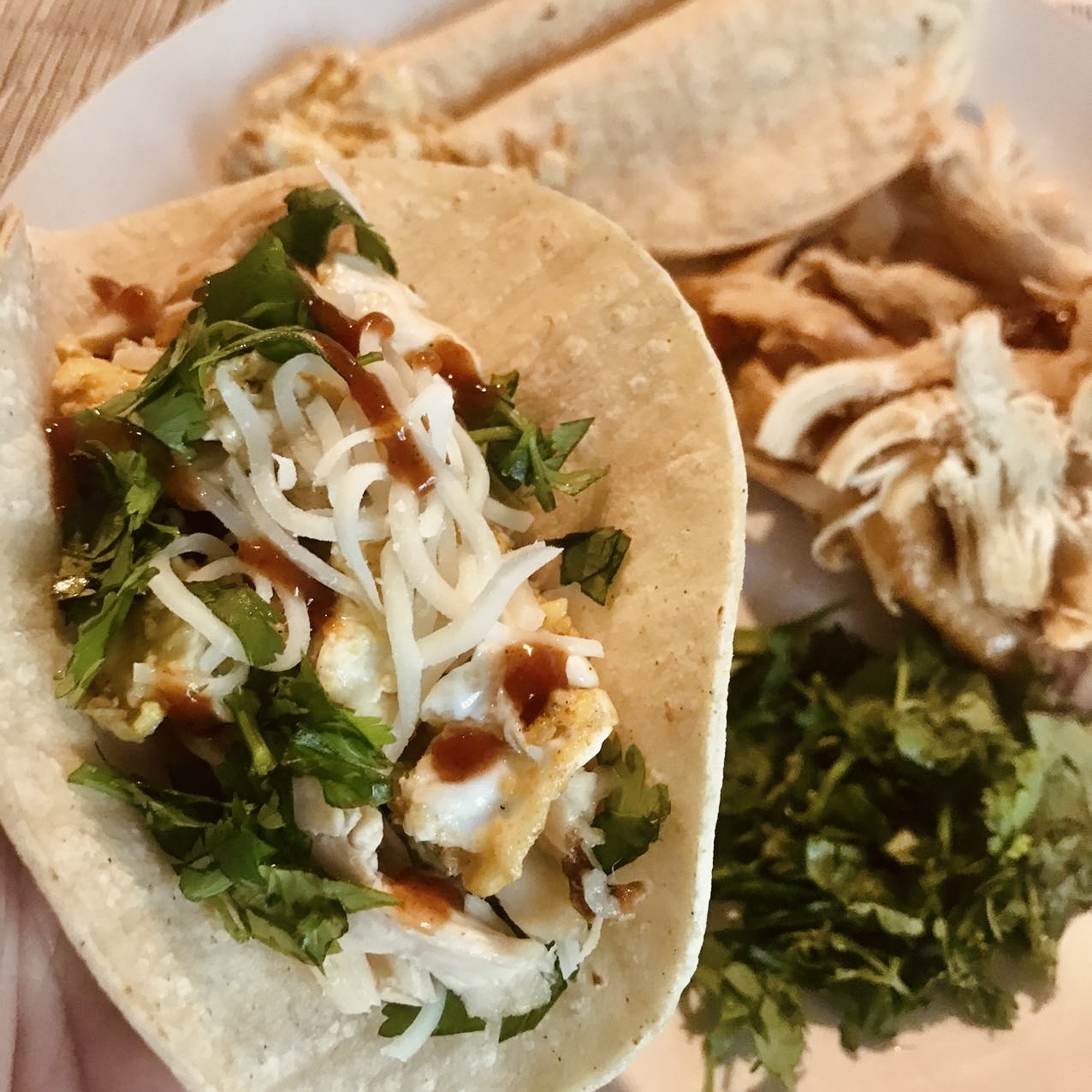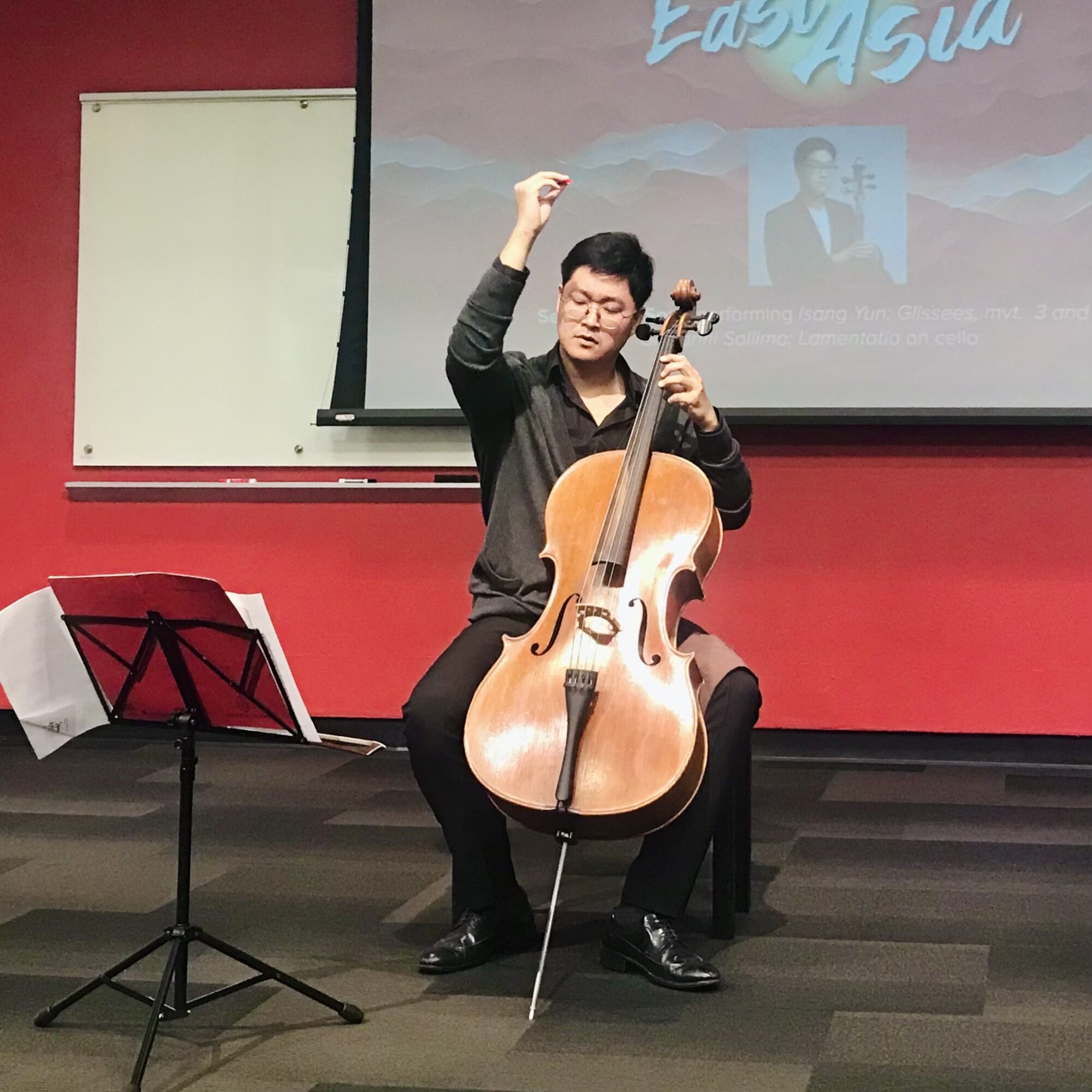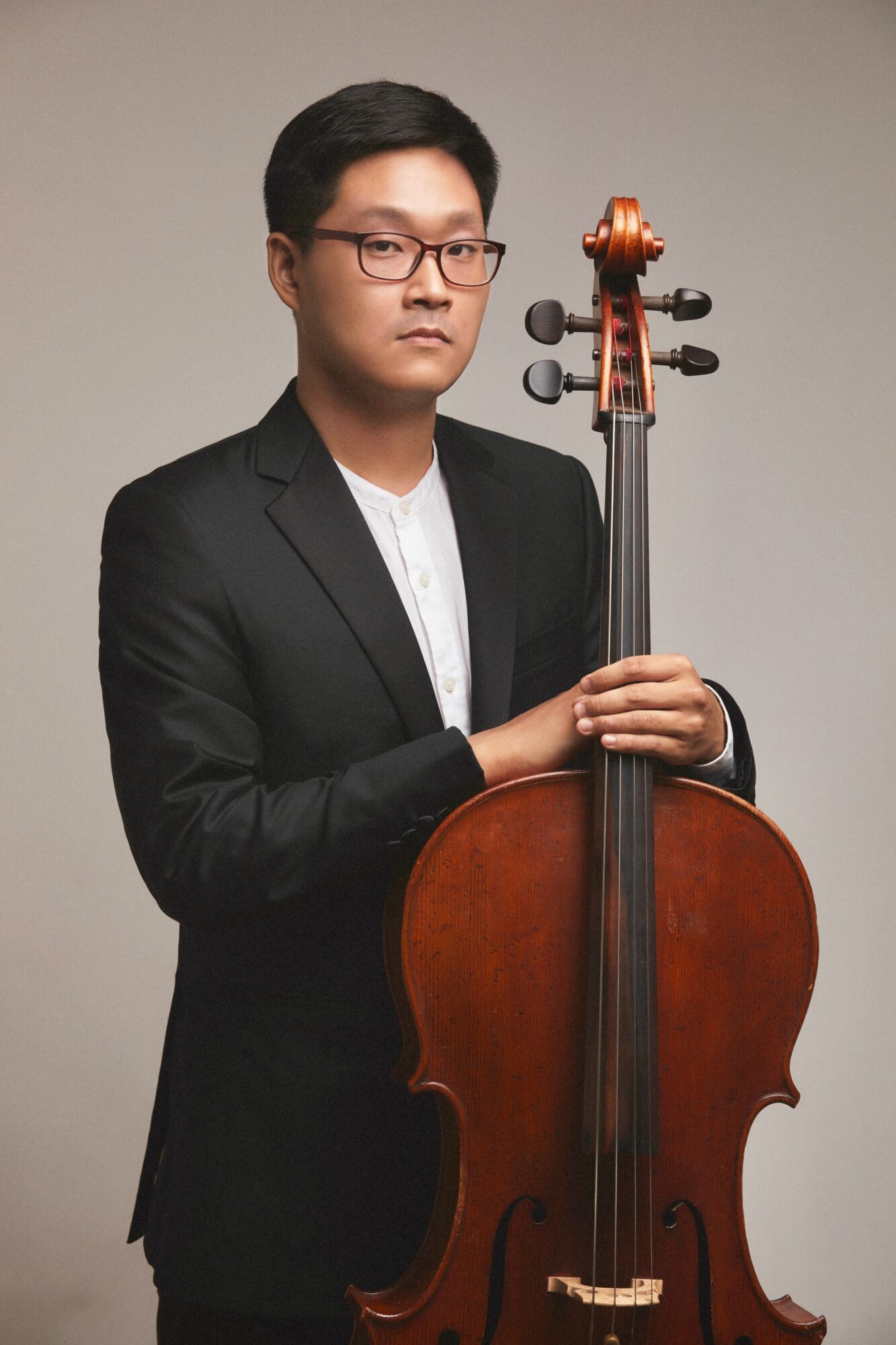

Today we’d like to introduce you to Seungchan Song.
Hi Seungchan, thanks for sharing your story with us. To start, maybe you can tell our readers some of your backstory.
I am a local cellist in the Kansas City area, currently pursuing my doctoral degree in cello performance at the University of Missouri – Kansas City. At the moment, I am performing with the Graduate Fellowship String Quartet, an ensemble made up of four fellowship students. Together, we serve the Kansas City metro area through musical enrichment and outreach. Additionally, I work as the assistant coordinator for the Conservatory’s Healing and Harmony Concert Series, an outreach project designed to connect students with underserved communities in the area. This includes places like senior living facilities, hospice houses, and University-affiliated hospitals such as Children’s Mercy Hospital and University Health.
Before I moved to the United States, I served in the Korean military as a member of the marching band during the pandemic. Our mission was to perform for soldiers stationed at various General Posts (GP) in our sector. We would pack up our instruments, hop into a small van, and drive through security lines up to the peak of a mountain, where we could literally see the North Korean General Posts in the distance. It was such a surreal experience, playing pop music medleys that were beloved by South Korean soldiers, but felt so foreign to anyone listening from miles away.
My two years in the military taught me a sense of discipline and organizational skills that are essential in the music business. People often say that the most important aspects of a successful chamber group go beyond musicality—they also include scheduling and strong interpersonal skills. The Graduate Fellowship String Quartet has played a key role in promoting the Conservatory’s mission to connect with local communities. We have also become one of the 16 semi-finalists in a national chamber music competition, so our schedule is packed with everything from outreach concerts for underserved youth at Harmony Project KC to intimate house concerts for musical connoisseurs.
Would you say it’s been a smooth road, and if not what are some of the biggest challenges you’ve faced along the way?
There is a saying, “You are your own worst critic,” and I can say that it is not false. In fact, I am not exaggerating when I say that there are days I consider giving up my performance career. The mental pressure and physical demands of striving for excellence, while also trying to make a living as a musician, are enormous. I grew up in a generation where being a musician was often seen as not a “real job.” Fortunately, my parents were supportive and told me it was fine to pursue music, as long as I had a backup plan. From there, the rest of the battle was internal. Every month, it feels like a new child prodigy emerges, and the audience often does not understand, or probably does not care, about the amount of dedication and effort that goes into perfecting my craft behind closed doors. I always knew that whatever I did, someone out there would be doing it better.
But in an industry where many people come and go, I have learned that consistency is what truly matters. One of my old teachers once told me that if I did not give up on music, people would not have much to say about my work until I reached the age of 60. I was 20 when I first heard that, and it took me about five years to truly understand what she meant. In this field, competition prizes and fame are the easiest measures, but not the only measures of success. What really counts is how well I prepare myself for the world. And most of the time, you will find yourselves over-prepared for a gig, but that is what sets you apart.
Alright, so let’s switch gears a bit and talk business. What should we know about your work?
I am currently a cellist with the UMKC Graduate Fellowship String Quartet. Together with my talented colleagues—Caroline Beckman, Qiufan Chen, and Chung-Wen Lee—we have had the incredible opportunity to represent the Conservatory on a variety of occasions. Our performances range from more intimate events like weddings to larger ones, such as Crescendo, the Conservatory’s biggest fundraising gala. The Conservatory’s mission to give back to the community is something that drives us, and it has been a huge motivation for our outreach efforts. On top of that, we are a quartet that loves collaborating with musicians across the country. We just wrapped up competing in the 2025 Plowman Chamber Music Competition, and in the coming weeks, we will be working with the renowned American composer Jake Heggie.
On a personal note, I aim to be a cellist who is always “ready” for anything. My repertoire primarily focuses on music from the 1970s, often described as the avant-garde period. Playing these pieces is like solving a tricky puzzle. When I first look at a score, it is often hard to imagine what the piece will sound like. But after diving deep into the score over several weeks, the structure starts to reveal itself, and that’s the first step in understanding a complex work. After that, it’s about figuring out how to master the techniques and practicing them until they feel natural. I even practice away from the instrument by vocalizing the notes and rhythms. Over the years, this approach has helped me bring any composers’ works to life, and I often find myself thinking, “What is more challenging than this?” Once I have faced that kind of challenge, performing on short notice becomes much more manageable.
When I’m not playing the cello, I help run the Conservatory’s Healing and Harmony Concert Series, an outreach project that’s closely tied to the Conservatory’s mission. Designed to bring comfort and joy to listeners, the series integrates live music into healthcare settings, fostering emotional well-being and community connection. My role isn’t just about performing at the hospitals; I also coordinate the performances, gather photos and testimonials, and make sure musicians are satisfied with the environment. The goal was to enrich the healing environment through music and providing student musicians with meaningful, community-engaged performance experiences. We started it as the pandemic was easing, and it felt like the right time to reach out. Since then, we have performed in hospitals, senior living centers, VA hospitals, and libraries, and now we have monthly performances at places like Children’s Mercy Hospital, University Health, and the Kansas City Hospice House. It is work I find incredibly fulfilling because it lets me contribute to the community by sharing music with people who may not otherwise have access to live performances.
And when I am not playing cello, I love taking photos of my food and sharing them on Instagram. It’s a fun way for me to unwind!
What matters most to you? Why?
Desperation for what I do matters. I have been playing the cello for over 20 years, but I am still in the process of perfecting my technique and my approach to music. Sometimes, I am honestly shocked when some of my colleagues at school say they do not listen to classical music because they find it unrelatable. Art is subjective, and how it is received often depends on the individual consumer. But I truly believe that if you are not desperate enough to create an art that is original, it eventually dies. Real artists are the one who always seek for an opinion that is sometimes bold and fearless. Just like how society has improved from a collision of different opinions, the art world hails creative people who are not afraid of expressing their opinions. They are the ones who absorbed all the traditions and history and then boldly said “no” to them, and I would like to be one like that.
Am I going to be that real artist? Only time and history will tell.
Contact Info:
- Instagram: https://www.instagram.com/seungchansong/
- Facebook: https://www.facebook.com/share/157dt21cQh/?mibextid=LQQJ4d
- Youtube: https://www.youtube.com/@seungchansong9725
